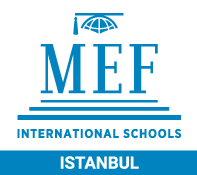In grades 9 and 10 students study Cambridge IGCSE International Mathematics. This course ensures that students acquire a solid foundation of mathematical skills and learn how to develop strategies for solving open-ended problems in a variety of abstract and real-life contexts. The course also allows learners to develop and sharpen their investigation and modeling skills and to build confidence and fluency in their use of techniques and mathematical understanding in preparation for the IB Diploma Programme.
The aims of Cambridge IGCSE International Mathematics are to:
- develop mathematical skills and apply them to other subjects and to the real world
- develop methods of problem-solving
- interpret mathematical results and understand their significance
- develop patience and persistence in solving problems
- develop a positive attitude towards mathematics which encourages enjoyment, fosters confidence, and promotes enquiry and further learning
- appreciate the elegance of mathematics
- appreciate the difference between mathematical proof and pattern spotting
- appreciate the interdependence of different branches of mathematics and the links with other disciplines
- appreciate the international aspect of mathematics, its cultural and historical significance, and its role in the real world
- read mathematics and communicate the subject in a variety of ways
- acquire a foundation of mathematical skills appropriate to further study and continued learning in mathematics
Students are assessed externally at the end of grade 10 through Cambridge IGCSE exams.
IB Diploma Programme
In grades 11 and 12 mathematics classes, students study in one of the three IB courses:
- Mathematics Analysis and Approaches (HL)
- Mathematics Analysis and Approaches(SL)
- Mathematics Applications and Interpretation (SL)
The aims of all IB Mathematics courses are to enable students to:
- enjoy mathematics and develop an appreciation of the elegance and power of mathematics
- develop an understanding of the principles and nature of mathematics
- communicate clearly and confidently in a variety of contexts
- develop logical, critical and creative thinking, and patience and persistence in problem-solving
- employ and refine their powers of abstraction and generalization
- apply and transfer skills to alternative situations, to other areas of knowledge, and to future developments
- appreciate how developments in technology and mathematics have influenced each other
- appreciate the moral, social, and ethical implications arising from the work of mathematicians and the applications of mathematics
- appreciate the international dimension in mathematics through an awareness of the universality of mathematics and its multicultural and historical perspectives
- appreciate the contribution of mathematics to other disciplines and as a particular “area of knowledge” in the TOK course.
The Mathematics Analysis and Approaches Higher Level course is a demanding two year course that covers the equivalent of at least two semesters of college level mathematics. Math HL caters for students with a good background in mathematics who are competent in a range of analytical and technical skills. The majority of these students will be expecting to include mathematics as a major component of their university studies, either as a subject in its own right or within courses such as physics, pure mathematics, engineering and technology. Others may take this subject because they have a strong interest in mathematics and enjoy meeting its challenges and engaging with its problems.
Mathematics Analysis and Approaches Standard Level is a course designed for students who wish to study a good level of mathematics, but not at a higher level. It will appeal to students who are interested in exploring real and abstract applications of mathematical concepts. They will enjoy problem solving and generalisation. This course is suitable for students who may go on to further study subjects that have a mathematical background, for example economics, geography, chemistry and business administration.
The Mathematics Applications and Interpretation Standard Level course caters to students with varied backgrounds and abilities. More specifically, it is designed to build confidence and encourage an appreciation of mathematics in students who do not anticipate a need for mathematics in their future studies. Students taking this course need to be already equipped with fundamental skills and a rudimentary knowledge of basic processes. The course concentrates on mathematics that can be applied to contexts related as far as possible to other subjects being studied, to common real-world occurrences and to topics that relate to home, work and leisure situations.Students taking this course are well prepared for a career in business management, social sciences, humanities, languages or arts. These students may need to utilize the statistics and logical reasoning that they have learned as part of the course in their future studies.



